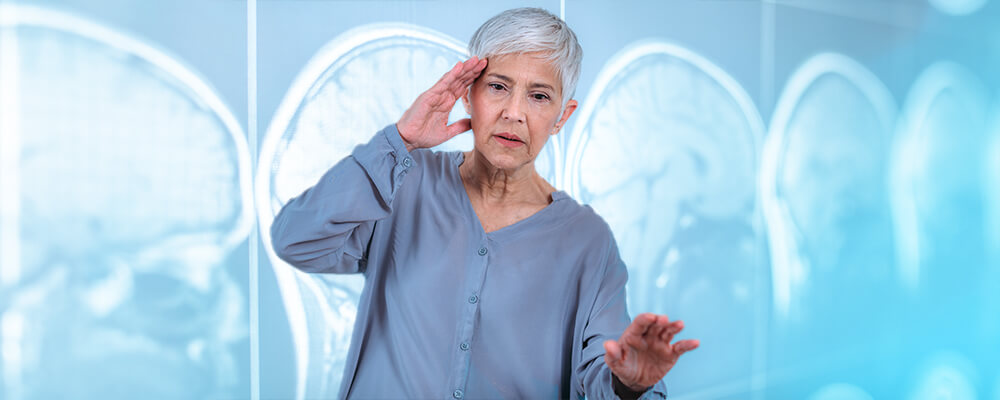Which Part of Brain Controls Balance?
August 16, 2022 | Brain and Spine Specialists

NOTICE: It is important to remember that dizziness can sometimes be a sign of stroke. If you experience dizziness paired with confusion, double vision, headache or numbness on one side of your body, please seek emergency medical attention.
Several parts of the brain are at work to assist your internal balance system, but mainly the cerebellum controls coordination. The cerebellum – sometimes called the “little brain” – can be found at the very back of your skull. Among its many functions, the cerebellum controls movement, speech, balance, and posture. Despite this, the cerebellum doesn’t work alone. There are several other parts of the brain involved in balance functions, including the vestibular system within the inner ear.
How does the brain control balance?
Despite the cerebellum’s small size – about 10% of the brain’s weight – it contains over half (and perhaps as much as 80 percent) of the brain’s neurons. A neuron is a specialized cell that transmits information via electrical impulses. The cerebellum receives information from the sensory systems, the spinal cord, and other parts of the brain and then regulates control of movements.
What happens when the balance control center is damaged?
When the brain’s coordination center is damaged, the result could be a number of neurological balance problems and conditions. Balance issues typically fall into one of two categories: physical injuries or neurological and inner ear issues.
What neurological disorders cause balance problems?
One of the common neurological disorders that cause dizziness, or lack of balance, is known as vertigo. It is common for people suffering from vertigo or other forms of dizziness to have difficulty coordinating their movements as their brain may not be sending the right signals, and they may feel like the room is spinning. Other neurological disorders that cause dizziness or balance problems include:
- Numerous chronic and progressive diseases
- Multiple sclerosis (MS)
- Parkinson’s disease
- Amyotrophic lateral sclerosis (ALS)
- Spinal Cord Injury
- Traumatic brain injury
- Concussion
- Stroke
- Migraine
Treating Neurological Causes of Vertigo
Depending on your unique symptoms and health background, your doctor will perform a thorough medical examination to determine the underlying cause of your dizziness and develop a treatment plan to best relieve your symptoms. Your treatment plan may include a combination of simple body maneuvers to clear your inner ear, balance therapy and medications, both oral and injectable.
Finding doctors who treat vertigo
Experiencing feelings of dizziness when sick, tired, hungry, anxious or under the influence of certain medications is completely natural and is usually no cause for alarm. A chronic balance problem, however, may indicate more serious neurological balance problems or an underlying unknown medical condition. If diagnosed and treated promptly, outcomes can be improved, and in some cases, lives may be saved.
Conclusion
If you or someone you know suspects they may be experiencing symptoms of neurological disorders that cause dizziness, schedule a consultation appointment to receive a professional evaluation and diagnosis with The Brain and Spine Specialists. Call (850) 785-0029 today!
Categories:
